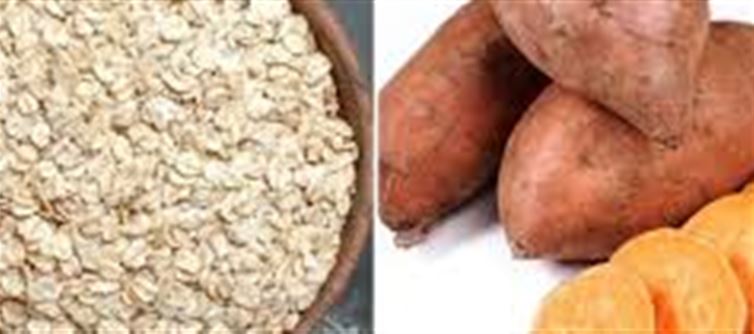
1. spinach and Other Leafy Greens
Spinach is rich in iron, folate, and vitamin C, all crucial for healthy blood circulation to the scalp. iron deficiency is a leading cause of hair fall, and monsoons often make people feel sluggish, worsening deficiencies. Adding spinach, methi (fenugreek leaves), or drumstick leaves to your meals boosts iron intake and promotes thicker hair.
How to eat: spinach dal, palak paratha, or a green smoothie with spinach and banana.
2. Eggs
Eggs are one of the richest sources of biotin and protein, two nutrients essential for keratin production, the protein that makes up your hair. The yolk also contains Vitamin D, which strengthens hair follicles.
How to eat: Boiled eggs for breakfast, scrambled eggs with veggies, or an egg curry with rice for lunch.
3. Nuts and Seeds
Almonds, walnuts, flaxseeds, chia seeds, and sunflower seeds are packed with Omega-3 fatty acids, vitamin E, and zinc. These nutrients protect hair from oxidative damage, reduce scalp inflammation, and nourish follicles.
How to eat: A handful of soaked almonds in the morning, flaxseed powder in smoothies, or mixed seed laddoos.
4. Citrus Fruits
Vitamin C is vital for collagen production, which strengthens hair shafts. Oranges, sweet lime, and lemons also help improve iron absorption from plant-based foods like spinach, ensuring stronger roots.
How to eat: Fresh orange juice, lemon water, or adding lime to salads and dals.
5. Sweet Potatoes
Rich in beta-carotene, which the body converts to vitamin A, sweet potatoes encourage the scalp to produce natural oils (sebum) that keep hair soft and hydrated. This prevents brittleness and hair breakage, common during humid monsoons.
How to eat: Roasted sweet potato chaat, boiled cubes added to salads, or mashed sweet potato with chapati.
6. Curd and Yogurt
Curd is an excellent probiotic that keeps the gut healthy, which is directly linked to nutrient absorption and hair health. It also contains protein, vitamin B5, and calcium, all of which strengthen hair roots.
How to eat: Plain curd with rice, spiced buttermilk, or yogurt-based smoothies.
7. Legumes (Lentils, Chickpeas, and Beans)
Legumes are protein-rich, but they also supply zinc, biotin, and folate, making them an all-rounder for hair growth. During monsoons, when immunity dips, lentils and beans also support overall health while giving your hair the building blocks it needs.
How to eat: Moong dal khichdi, chole with rice, or rajma curry with chapati.
Pro Tips for Monsoon Hair Health
- Stay hydrated – Drink 8–10 glasses of water daily to flush toxins and maintain scalp health.
- Avoid excess fried and oily foods – These can trigger scalp oiliness and dandruff.
- Incorporate seasonal fruits like papaya and guava for extra vitamins and antioxidants.
- Balance diet with exercise to improve circulation, ensuring nutrients reach the hair roots.
Final Word
Stopping hair fall in the monsoon is not about quick fixes; it’s about nourishing your hair from the inside out. By consistently including these seven foods in your daily meals, you provide your hair with the essential nutrients it needs to withstand the challenges of humidity, infections, and weakened roots.
Disclaimer:
The views and opinions expressed in this article are those of the author and do not necessarily reflect the official policy or position of any agency, organization, employer, or company. All information provided is for general informational purposes only. While every effort has been made to ensure accuracy, we make no representations or warranties of any kind, express or implied, about the completeness, reliability, or suitability of the information contained herein. Readers are advised to verify facts and seek professional advice where necessary. Any reliance placed on such information is strictly at the reader’s own risk..jpg)




 click and follow Indiaherald WhatsApp channel
click and follow Indiaherald WhatsApp channel